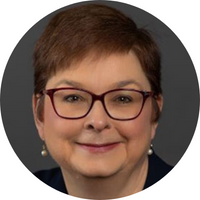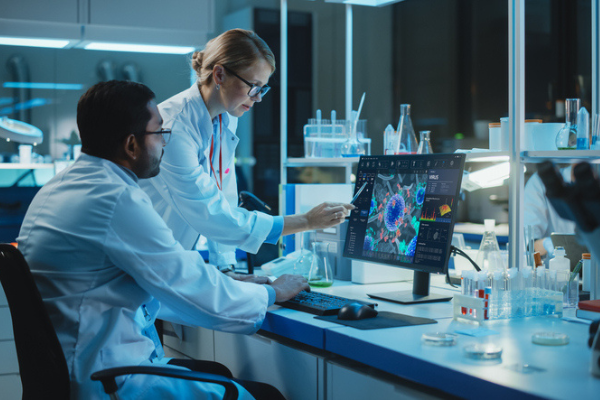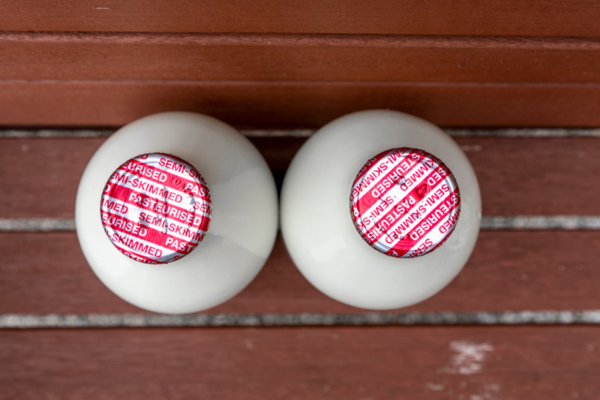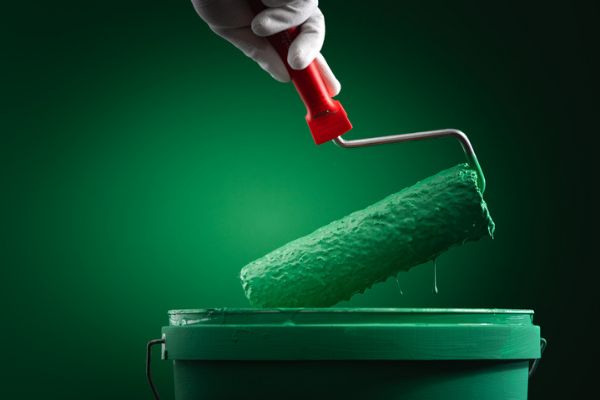
How is it harder for a mid-career chemist today than in the past? What advice do you have to help them thrive in this challenging environment?
You have to continue to learn and develop relevant skills that the company needs. Flexibility is critical for finding your place in a changing landscape. The company has evolved over the past three decades, and I have seen it was important to keep current with technology, develop business acumen, and interprofessional skills to provide an impact. Once you have developed these skills, you can apply them in multiple roles.
For example, although Al has a Ph.D. in Chemistry and started in R&D, he’s also worked in Supply Chain, Operational Excellence, and is currently in Human Resources. All those roles required strength in data analysis, project leadership, and communication. I think every chemist should understand their strengths. I love my job in manufacturing since it combines my technical expertise as an analytical chemist, draws on my global network within the company, presents different challenges on a daily basis, and I can see the impact of my work. It’s an amazing feeling when you have a role that you are good at, it is valued by the company and the role makes the most of your strengths – I call it the “sweet spot”.
What was your greatest hope and your greatest apprehension about relocating from the U.S. to the Netherlands in 2006 as a Dow employee? What is the profile of a person who would be successful in making such a move?
I initiated the move since I wanted to learn more about the world and to have the opportunity to understand my own culture/country better. Living in another country challenges your perspective on how things are done and provides insights into alternative ways of living life. To make this type of change, you have to be willing to move outside of your comfort zone and be open to change. It helps to have an optimistic outlook and find the bright side of all challenges.
My biggest apprehension was learning the Dutch language. One of the reasons it is hard to learn is that almost everyone here speaks fluent English, and we had to find friends that would let us practice Dutch. I can understand spoken Dutch better than I can speak it, which is common for learning a second language.
You are a big supporter of women chemists. From speaking with others over your long career, what is an area where things have improved for women chemists in industry, and what is an example of an area that is particularly lagging?
There is significant support for inclusion and diversity within industry today. Diversity is about numbers, but inclusion requires culture change, making the most of everyone’s contributions, and having each team member feel they really belong. Teams are more innovative and successful when each of us feels that we are part of the team and that we can bring our whole self to work.
Senior leadership recognizes the strengths of an inclusive culture and provides the resources and programs needed to achieve our inclusion goals. However, across the chemical enterprise, there are still are well-documented gaps in representation of women at the highest level.
Both you and your husband, Al, work for Dow Benelux. What are the pros and cons in terms of a couple working for the same employer?
We enjoy working for the same company, being able to discuss work-related issues, and sometimes provide coaching to each other. Over the past 27 years, we hardly ever worked in the same technology area even though we have the same technical background. We also find that our network is almost doubled since we introduce each other to colleagues.
When I meet someone for the first time in Terneuzen, they are likely to ask “are you related to Al?” Overall, it’s worked very well for us and Dow has many dual-career couples. I can’t think of any disadvantages we have encountered.
You received the 2018 Award for Volunteer Service to the ACS. Few people have served the Society in such a varied number of roles: Local Section Chair, Local Section Councilor, Division Treasurer, Committee chair, Task Force member, among others. How do you balance your work and volunteer responsibilities, not to mention your personal life?
ACS volunteer service is not only enjoyable but it has provided professional and personal growth. I’ve applied a number of skills that I developed through ACS to my day job. It’s fairly easy to balance the time since I try and schedule ACS meetings after work.
For example, the local section executive committee meets during their lunch/my dinner (perfect timing since our time zones are 7 hours apart). I try and combine trips to the U.S. for ACS meetings with Dow business trips. My family has organized several family reunions around national meetings, too. Also, since Al is also an active volunteer, we travel together to national meetings and enjoy meeting friends there. Volunteering with community, school, church or other organizations is deeply embedded in the American culture.
What led you to pursue a Ph.D.? How would your career trajectory have differed without it?
I was inspired when I had the opportunity to do undergraduate research – I really enjoyed the challenge of making something work that had not been done before. While I enjoyed coursework, the focus was on learning what others had done and the lab work was generally focused on obtaining a known result. During my Ph.D. training I learned how to ask better questions and develop confidence in addition to gaining technical knowledge and problem solving skills. Those are essential for the roles I’ve had at Dow.
Without a Ph.D., I would have started at a slightly lower level, and although the career path would be the same, I may have missed some opportunities. Things have evolved and there are many companies and roles where a Ph.D. is required. In industry, you can apply your expertise in many different departments beyond R&D (e.g., Technical Development, Sales, Manufacturing, Quality, Supply Chain, and Product Stewardship) and many of those career paths don’t require a Ph.D.
What non-technical skills have been your greatest asset over the years? Were these skills even on your radar as you pursued your Ph.D. at the University of Buffalo? How did you acquire and develop them?
I wish that I had been more aware of the need for business acumen when I was a student; I would have taken at least one basic class. I’ve developed the business knowledge I have at work. Like most large companies, Dow has a strong portfolio of internal training courses. Interpersonal skills were developed over time, with training courses, and practicing the skills through volunteer and on-the-job opportunities. And as I said, volunteering for the ACS has been a great environment to practice and strengthen leadership skills.
What would you miss more if we took them away from you? Your automobile or your bicycle?
I love riding my bike in the Netherlands as a leisure activity. There are wonderful and safe bike paths everywhere. I’m not a fan of riding in strong wind, rain, or during the winter, and I often work long days, so I am still very dependent on having a car. We can carpool to work and we have 1 car and 2 bikes.

Carolyn Ribes is a Business Analytical Leader for the Dow Chemical Company, responsible for creating and implementing the business analytical strategy for the Industrial Intermediates and Infrastructure businesses. Carolyn has worked for Dow Chemical for a total of 30 years with roles in Manufacturing and R&D. She is currently based in the Netherlands.
Carolyn is an active volunteer leader of the American Chemical Society at the national and local level. She also serves on the Dow Benelux Women’s Innovation Network steering team which focuses on attracting, developing, promoting, and retaining women in her workplace.
This article has been edited for length and clarity. The opinions expressed in this article are the author's own and do not necessarily reflect the view of their employer or the American Chemical Society.
Copyright 2019 American Chemical Society (All Rights Reserved)







